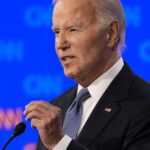Jews living in Dagestan, a Muslim-majority region in southern Russia, are steadfast in their resolve to rebuild after a recent violent attack by Islamic militants targeted Christian and Jewish places of worship in two cities over the weekend.
The attacks, which took place in Makhachkala and Derbent, resulted in the death of 21 people, mostly police officers, and left at least 43 others injured in this troubled North Caucasus region along the Caspian Sea.
Rabbi Berel Lazar, who leads the Jewish community in Russia, shared that a 110-year-old synagogue in Derbent, a central hub for Jewish life in the region, was destroyed in one of the fires set during the attacks. Among the victims was Rev. Nikolai Kotelnikov, a 66-year-old Russian Orthodox priest killed during a service at a church in Derbent on Pentecost or Trinity Sunday.
Lazar emphasized that the Jewish community in Dagestan is refusing to succumb to fear and intimidation by extremists. They are committed to openly practicing their religion and are optimistic that the government will take steps to ensure their protection, allowing them to rebuild and grow stronger in the face of adversity.
Further incidents have highlighted the challenges faced by the community, including an attack on the Derbent synagogue’s leader in 2013 and a riot at the Makhachkala airport during a tense period between Israel and Hamas.
The Jewish community in Dagestan, known as the Juhuro or Mountain Jews, maintains a deep connection to their land and traditions, distinct from the wider Jewish diaspora. Their language, Juhuri, is a branch of the Tat dialect of Persian and is spoken exclusively by the local Jewish population. Despite the hardships and risks they face, the Juhuro remain resilient and proud of their heritage.
While tensions may exist, particularly in times of conflict or extremism, overall the relationship between Jews and Muslims in Dagestan has been characterized by mutual respect and understanding. Rabbi Lazar noted that the majority of Muslims in the region condemn the recent attacks, recognizing them as assaults on their shared communities and values.
As the community looks to rebuild and recover, concerns remain about their safety and future. While some are optimistic about state protection, others remain skeptical of government support in the face of ongoing challenges and neglect from Moscow.
Associated Press religion coverage receives support through the AP’s collaboration with The Conversation US, with funding from Lilly Endowment Inc. The AP is solely responsible for this content.





